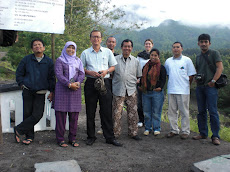
Following up on previous meetings, HFI held an advanced workshop to complete a post-disaster assessment tool in the education sector. This meeting examined the problems of the system for damage assessment at identification stage, after disaster affected the education sector.
Disaster assessment tools that already exist in Indonesia are very diverse and have different standards from each other. As a result, it’s hard to find accurate data to measure the overall damage in times of disaster.
Having reviewed the various existing standards, such as Standard INEE (Interagency Network for Education in Emergencies), Need Assessment Tools ENA, Join Rapid Initial Assessment, and other devices owned by the National Department of Education, there are many advantages and disadvantages.
UNESCO and HFI combined and conducted a review of these materials, which conducted a review of the following areas:
1, reliability of information: format differences, and the capabilities of different agencies in conducting assessments.
2. Completeness of information obtained, including: lack of information about school facilities, focusing on the structure of school buildings; lack of information about post-disaster capacity of schools to carry out the minimum standards for education in emergencies (for teachers, books, etc.).
3. Assessment of the operational needs of the school during the crisis and reconstruction: management of the school, the needs of teaching staff (permanent and temporary).
4, Many temporary teachers cannot continue to teach, because supplementary teaching support materials are unavailable.
Other post-disaster measures in the education sector include:
• Stage of emergency assistance.
• Early recovery phase.
• Aftermath: reconstruction and rehabilitation.


